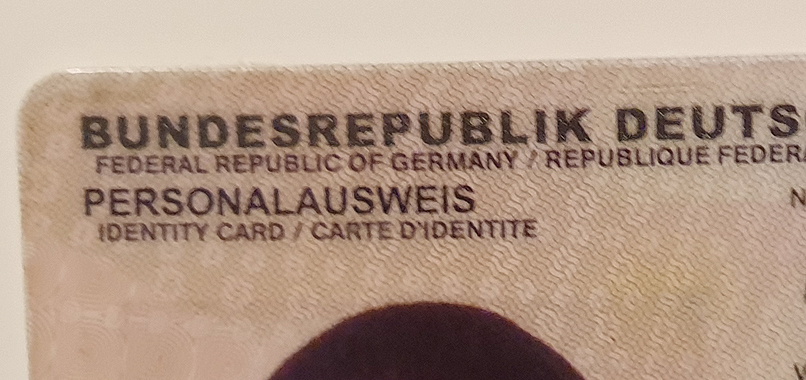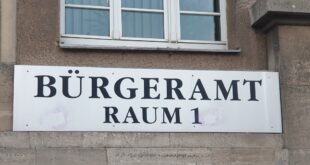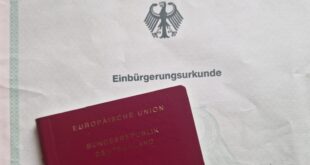The solidarity surcharge will be abolished for most taxpayers and a CO2 tax will make petrol more expensive and there are also new regulations affecting employees, taxpayers, home builders and families. The year 2021 starts with many new laws and regulations. An overview of the most important changes:
Minimum wage
The statutory minimum wage will rise from 9.35 euros to 9.50 euros per hour on 1 January. Thereafter, an increase is planned in six-month intervals. For example, on 1 July, the wage will rise further to 9.60 euros and finally to 10.45 euros on 1 July 2022.
VAT rises again
From 1 January, the regular Value Added Tax (VAT) rate of 19 per cent on most goods and 7 per cent on everyday goods, especially food, will apply again. The federal government had lowered the tax in July for six months because of the Corona pandemic to boost consumption and give the economy a lift.
Solidarity surcharge
The solidarity surcharge (Soli) has been abolished for more than 90 per cent of taxpayers. Hence, from 2021, only top earners will have to pay the Soli, which was originally introduced as a special tax for the reconstruction of East Germany. It amounts to 5.5 per cent of corporate and income tax.

Income tax
The basic tax-free income – that is, the portion of income on which no taxes have to be paid – will increase to 9,744 euros in 2021. Previously it was 9,408 euros per year.
New 20-euro notes
New 20-euro notes get a coating with a special varnish that makes them more durable. The overwork will make the banknotes feel smoother. Old notes will be gradually withdrawn from circulation.
More security for online credit card uses
Henceforth, anyone paying for purchases on the internet with a credit card will need another piece of information in addition to the data on the card, such as a transaction number (TAN) – the so-called “two-factor authentication”. This means that for payment for an online purchase, the entry of the credit card number, expiration date and the three-digit verification (security) number, will no longer be sufficient for authentication. A further authentication via a code (TAN) that is generated by a bank app or comes as an SMS on the Smartphone (mobile TAN or photo TAN) will be required. This requires that users of credit cards must also be registered for online banking.
From 15 January 2021, payments of 250 euros or more must be approved with the “two-factor authentication”; from 15 February it will apply to transactions from 150 euros and from mid-March for all payments.
Flat rate for home office (Homeoffice-Pauschal)
As a result of expanded work from home due to the pandemic, a flat-rate of five euros can be claimed as income-related expenses for each full working day in the home office, to a maximum of 600 euros per year. Travel allowance does not apply for these days.
Child benefit
As from 1 January, there is an increase of 15 euros per child in child benefit. For the first and second child, parents will receive 219 euros per month, for the third 225 euros and from the fourth 250 euros.
In addition, the tax-deductible allowance for the child’s care, education or training have been increased by 288 euros. Parents can then claim 8,388 euros per child – that is, the portion of their income on which no taxes have to be paid.
Basic income support and social assistance
The Hartz IV standard rate for single adults will rise to 446 euros per month from 1 January – an increase of 14 euros. Basic income support recipients aged 18 to 24 who live with their parents will receive 357 euros. For children up to five years old, the benefit increases to 283 euros, for six to 13-year-olds to 309 euros; and 14- to 17-year-olds receive 373 euros per month.

Disposable plastic
From 3 July 2021, products made of single-use plastic will no longer be sold. This includes, for example, plastic crockery and cutlery, drinking straws and packaging for hot food and drinks made of polystyrene. With this law, Germany will be implementing an EU regulation according to which single-use plastic will be banned in all member states.
CO2 tax increases heating and fuel costs
Filling up your car and heating your home with oil and gas will become more expensive in 2021. The reason for this is the new CO2 tax; an amount of 25 euros will be charged for each tonne of CO2 emitted.
From January 2021, the tax will be due on petrol, diesel, heating oil and gas, among other things. According to estimates of the ADAC, the price of a litre of petrol is likely to increase by around seven cents in 2021, and that of a litre of diesel by around eight cents.
The aim of the CO2 tax is to make fossil fuels less attractive and to encourage people to switch to more climate-friendly alternatives. The CO2 price is to rise gradually to 55 euros per tonne of CO2 in 2025.
Vehicle tax
Anyone who registers a car with high CO2 emissions from 1 January will have to pay more as motor vehicle tax. The motor vehicle tax for passenger cars is calculated on the basis of the engine capacity and CO2 emission value. In future, the tax will be assessed more according to the CO2 value. This is intended to provide an incentive to buy lower-emission vehicles.
READ ALSO What the Brexit deal means for EU travellers to UK
Driving license
In future, learner drivers will have to take an “optimised practical driving licence test”. The practical driving test lasts about ten minutes longer and takes place according to uniform criteria.
Identity card
The cost of an identity card (Personalausweis) will rise to 37 euros for people over 24. Previously, it was 28.80 euros. From 2 August 2021, newly issued identity cards will contain a chip with two fingerprints. Old ID cards will remain valid until their expiry date.
Certificate of incapacity for work
Henceforth, doctors will send the sick note, officially called a certificate of incapacity for work (Arbeitsunfähigkeits-Bescheinigung), electronically to the relevant health insurance fund. Patients will no longer have to submit the “yellow slip” to their health insurer themselves, but they will still have to submit it to their employer.
Doctor’s prescriptions will also be available electronically in the future. From 1 July 2021, both variants will exist side by side, and from 2022 the paper form will be discontinued.
Electronic patient file
From 1 January, all members of statutory health insurance funds can receive an electronic health record (elektronische Gesundheitsakte or elektronische Patientenakte, ePA) from their health insurance company. The offer is voluntary. Data such as diagnoses, medication plans, vaccinations and doctor’s letters are stored in the ePA.
In an emergency, important information should be available more quickly. The ePA is also intended to avoid duplicate examinations, for example, when changing doctors.
Supplement to basic pension
There is also more money for pension recipients – but only in the east of Germany and only by 0.72 per cent. A new feature is a basic pension for people who have worked for at least 33 years and only receive a small pension.
The supplement for 1.3 million people with small pensions will enter into effect on 1 January – the basic pension. Anyone who has made at least 33 years of pension contributions from employment, child-rearing or care work will receive it. An application is not necessary.
However, only those whose monthly income as a pensioner does not exceed 1,250 euros (single persons) or 1,950 euros (married couples) will receive it.
Femi Awoniyi
READ ALSO Germany: New laws and regulations in December 2020
 THE AFRICAN COURIER. Reporting Africa and its Diaspora! The African Courier is an international magazine published in Germany to report on Africa and the Diaspora African experience. The first issue of the bimonthly magazine appeared on the newsstands on 15 February 1998. The African Courier is a communication forum for European-African political, economic and cultural exchanges, and a voice for Africa in Europe.
THE AFRICAN COURIER. Reporting Africa and its Diaspora! The African Courier is an international magazine published in Germany to report on Africa and the Diaspora African experience. The first issue of the bimonthly magazine appeared on the newsstands on 15 February 1998. The African Courier is a communication forum for European-African political, economic and cultural exchanges, and a voice for Africa in Europe.






























